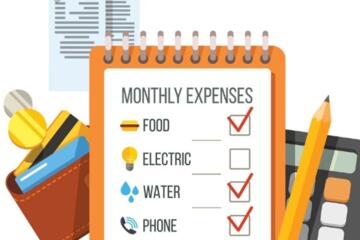You don’t need to be a finance expert to manage your money well. Yet, so many smart, capable people feel stuck in cycles of debt, poor spending, or missed opportunities — often because of simple mistakes they didn’t even realize they were making.
The truth? Most money mistakes are fixable. But to fix them, you have to spot them first.
Whether you're just starting out, rebuilding, or looking to level up your finances, avoiding these common pitfalls can save you thousands of dollars — and years of stress.
1. Living Without a Budget
The mistake: “I just keep track in my head.”
Why it hurts: Without a budget, you’re guessing — not managing. And guesswork leads to overspending.
What to do instead:
Create a simple monthly budget. It doesn’t have to be complicated. Use a free app like Mint, Goodbudget, or a basic spreadsheet. Track income, list expenses, and assign every dollar a job.
Quick tip: If you’re new to budgeting, start by tracking your spending for a month. Awareness is the first step to control.
2. Only Making Minimum Payments on Debt
The mistake: Paying just the minimum on credit cards or loans.
Why it hurts: You’ll end up paying way more in interest, and your debt will stick around much longer.
What to do instead:
Focus on paying off high-interest debt as fast as possible. Use the debt snowball (smallest balance first) or debt avalanche (highest interest rate first) method — whichever keeps you motivated.
Example: Paying just the minimum on a $3,000 credit card at 20% interest could take over 10 years to pay off — and cost more than $3,000 in interest alone.
3. Not Having an Emergency Fund
The mistake: Relying on credit cards or loans for unexpected expenses.
Why it hurts: Emergencies become even more expensive when they come with interest charges.
What to do instead:
Build an emergency fund — even $500–$1,000 is a solid start. Aim to eventually save 3–6 months of essential expenses.
Where to keep it: Use a separate savings account, ideally one with a high-yield interest rate. Avoid keeping it in your checking account, where it's easier to spend.
4. Ignoring Your Credit Score
The mistake: Thinking credit scores only matter when you buy a house.
Why it hurts: Poor credit can impact your ability to rent, get a job, or even qualify for a cell phone plan.
What to do instead:
Check your score regularly through free services like Credit Karma or your bank. Pay bills on time, keep credit utilization under 30%, and avoid opening too many new accounts.
Pro tip: Set up automatic payments for at least the minimum due on your cards to never miss a deadline.
5. Impulse Spending
The mistake: Making emotional or unplanned purchases.
Why it hurts: It chips away at your budget and often leads to regret — and clutter.
What to do instead:
Try the 24-hour rule for non-essential purchases. If you still want it after a day (or week), and it fits your budget, go for it. If not, you’ll be glad you waited.
Bonus idea: Unsubscribe from retail emails and remove saved cards from shopping sites to reduce temptation.
6. Not Saving for Retirement Early Enough
The mistake: “I’ll save for retirement later when I make more.”
Why it hurts: Waiting just a few years to start saving can cost you tens of thousands in missed compound interest.
What to do instead:
Start small. Even 5% of your income is a great beginning. If your employer offers a 401(k) match — take it! It’s free money.
Example: Saving $100/month starting at 25 can grow to over $200,000 by retirement. Waiting until 35? It’s only about $100,000 — even if you double the monthly savings.
7. Confusing Wants With Needs
The mistake: Justifying luxury or lifestyle spending as essential.
Why it hurts: You overspend on things that don’t actually move your life forward.
What to do instead:
Be brutally honest when budgeting. Do you need the latest phone, or just want it? It’s fine to treat yourself — just don’t call it a necessity if it’s not.
Tip: Use a “fun money” category in your budget so you can enjoy life and stay disciplined.
8. Avoiding Financial Conversations
The mistake: Avoiding talks about money — with your partner, family, or even yourself.
Why it hurts: Financial problems often grow in silence. Avoiding the topic doesn’t make it go away.
What to do instead:
Schedule regular “money check-ins” — with yourself, or with a partner. Talk about goals, review spending, and adjust together.
Helpful idea: Treat money talks like business meetings — not arguments. Stay calm, focused, and solution-oriented.
Final Thoughts: Progress Over Perfection
No one handles their money perfectly — and that’s okay. The key is learning from mistakes and making small, consistent improvements. Whether you’ve been overspending, ignoring your savings, or simply unsure where to start, you can always take a step in the right direction.
Takeaway:
Recognize these common mistakes, take simple actions to correct them, and stay committed to learning more about your finances. The sooner you start, the easier it gets — and your future self will thank you.









